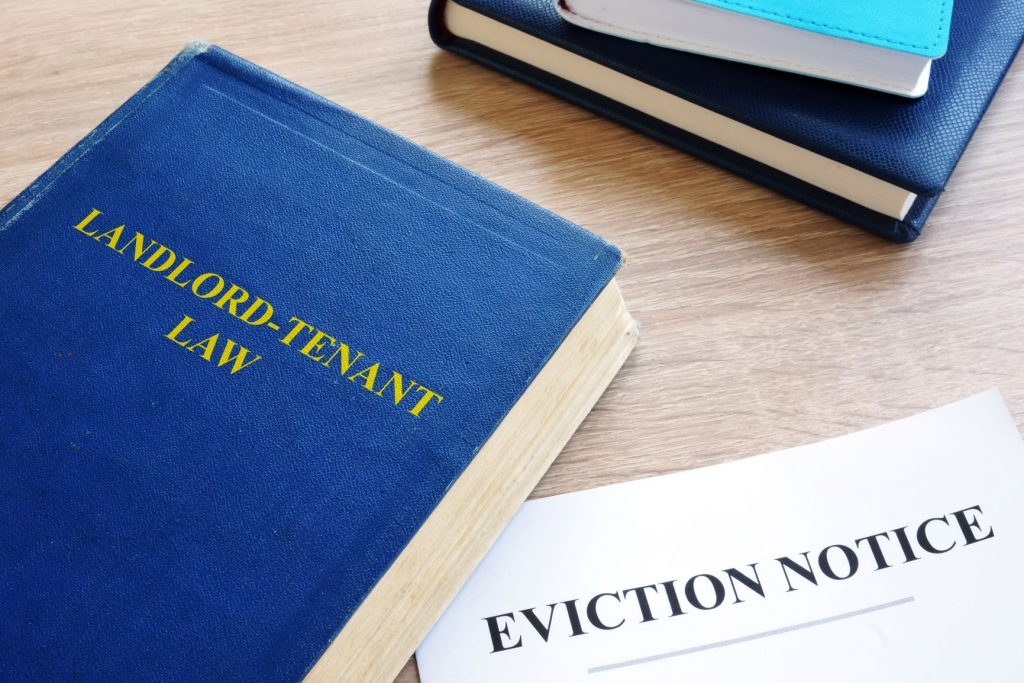Recent stats show that 35% of Arizona residents were renting in 2019 so there are many tenants and landlords impacted by eviction moratoriums issued by state and federal authorities throughout 2020. To help renters and landlords gain some clarity on the temporary halt to evictions, our firm put together some of the key things to understand about the upcoming end of eviction moratoriums and how it will potentially impact them.
Arizona Eviction Moratorium
The initial eviction moratorium was issued by Governor Doug Ducey on March 24th, 2020 and only pertained to hardships related to COVID-19. This required a tenant to notify the landlord in writing of the circumstances that made it impossible to pay rent, while still allowing landlords to give notice to quit, file eviction notices to tenants for nonpayment of rent, or any other breach of contract that was not related to the pandemic. This moratorium was set to expire on August 21st, but on July 16th, Governor Ducey extended the moratorium through October 31st.
CDC Federal Eviction Moratorium Information
Although the Arizona eviction moratorium expired on October 31st, the nationwide moratorium on evictions issued by the CDC went into effect on September 4th and remains in place through December 31st, 2020. This declaration supersedes the Arizona moratorium and will continue to offer renters protection from eviction for non-payment or COVID-related hardships through the end of 2020.
In order to qualify for the CDC’s eviction moratorium, renters must meet several requirements. First, the tenant must show that they have applied to receive government assistance or housing assistance. Second, the tenant must not expect to earn more than $99,000 in annual income during the 2020 calendar year, or more than $198,000 for couples who share a lease and file their taxes jointly. Third, if the tenant is unable to make a full housing payment, it must be due to a loss of household income, loss of working hours or wages, or the individual has incurred high out-of-pocket medical expenses. Fourth, the tenant is using best efforts to pay rent or partial rent on-time. And fifth, the tenant would likely be homeless or forced to move into shared housing, due to limited finances or alternative housing options. Each renter must also provide landlords with a CDC declaration form in order to qualify for eviction protection.
It is important to note that any evictions filed and completed prior to September 4th, 2020 would not be covered under the Federal Eviction Moratorium. Additionally, once the eviction ban ends in 2021, tenants still owe landlords all missed rent payments.
Can landlords still evict tenants during the CDC Federal Eviction Moratorium?
Yes, even if a tenant is covered under the Federal Eviction Moratorium, they can still be evicted for a number of reasons that are not related to payment. This includes criminal activity while on the premises, threatening the health and safety of other residents, damaging the property, violating building or health codes, and nearly any other contractual violation that is not related to payment for housing.
There are many resources available for tenants facing financial difficulties, including several rental assistance programs.
For the complete CDC FAQ on the Eviction Moratorium: https://www.cdc.gov/coronavirus/2019-ncov/downloads/eviction-moratoria-order-faqs.pdf
Here are a few important things to understand about how a landlord can still evict a tenant currently directly from the CDC FAQ:
(1) engaging in criminal activity while on the premises;
(2) threatening the health or safety of other residents;
(3) damaging or posing an immediate and significant risk of damage to property;
(4) violating any applicable building code, health ordinance, or similar regulation relating to health and safety; or
(5) violating any other contractual obligation of a tenant’s lease, other than the timely payment of rent or similar housing-related payment (including nonpayment or late payment of any fees, penalties, or interest).
Arizona Rental Assistance Program Running Out
AZCentral reported this week that Maricopa County has stopped taking applications for rental assistance as the $30 million dollars allocated for their program has been allocated. The state is reporting roughly $11 million dollars left in other state programs from the CARES Act. Unfortunately, that is a small portion of the estimated $178 million owed by renters in unpaid rent and the article forecasted there could be as many as 150,000 evictions next month.
There are still programs with money left for rental assistance in Phoenix, Tempe, Glendale and the Arizona Department of Housing. While they are still taking applications, that is unlikely to last much longer based on available funds in each program and renters hoping for assistance should submit their application as soon as possible.
Get Help From an Experienced Arizona Real Estate Attorney
Whether you are a tenant or landlord dealing with issues from unpaid rent, it will be important to be proactive as the eviction moratorium comes to an end. Our firm represents landlords and tenants with residential and commercial properties. We can help you devise a plan that is fair and equitable to avoid the eviction process. Contact RSN Law today at 480-712-0035 or make an appointment for an initial consultation online to discuss your options.
RSN Law intends this article to be for informational purposes, not to be relief on a specific legal matter, and do not create an attorney-client relationship.

